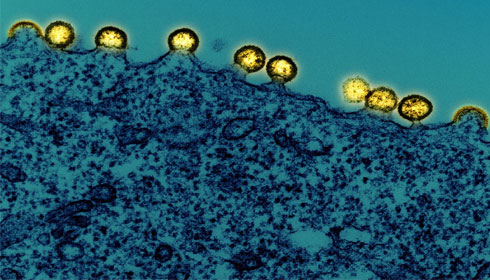
Chad’s Fight Against HIV: A Journey Towards Healthier Mothers and Children
For over 15 years, Judith Haltebaye has been a cornerstone of maternal care in Chad. As a seasoned midwife with seven years of service at the Abena-Atetip Health Centre in central N'Djamena, she has supported countless women through pregnancy and beyond. Among her patients is 34-year-old Menodjie, whose story underscores the transformative impact of Chad’s Prevention of Mother-to-Child Transmission of HIV (PMTCT) Programme.
“Menodjie came for a consultation in January, and through routine tests, we discovered she was living with HIV. At the time, she was expecting her second child,” Judith recounts. Thanks to the PMTCT Programme, Menodjie’s daughter was born HIV-free, a triumph made possible by comprehensive care and antiretroviral medicines (ARVs).
In Chad, an estimated 65,000 women aged 15 and older were living with HIV in 2023, according to UNAIDS. With an HIV prevalence rate of 1.3% among women aged 15 to 49, the government launched the PMTCT Programme in 2005 to safeguard children from infection during pregnancy, childbirth, and breastfeeding.
The initiative has yielded remarkable results. The rate of mother-to-child HIV transmission has dropped from 29% in 2012 to 19% in 2023. By the end of 2023, 91,000 HIV-exposed children had tested negative, and 1,300 new infant infections had been prevented through PMTCT efforts.
“We’re proud of this progress,” says Dr. Hassan Ndengar, HIV focal point for N'Djamena’s southern district. “Children are the strength of a country and represent the future generation. Prevention is key. By screening pregnant women, we can reduce transmission rates and break the chain of infection.”
Midwives, doctors, and paramedics are the backbone of Chad’s HIV prevention efforts. With technical and financial support from the World Health Organization (WHO), 750 healthcare workers have been trained in HIV and hepatitis management. These trainings emphasize the importance of routine HIV testing during antenatal consultations.
“From the first contact, we ensure women understand the importance of being screened,” says Judith. Women who test positive undergo confirmatory tests and receive free, comprehensive care, including counseling and ARVs.
The availability of ARVs has transformed lives. In 2023, 7,700 pregnant women required ARV treatment, with 70% receiving it—an increase from 64% in 2022. “These medicines have given me back my strength,” Menodjie shares. “My daughter was born healthy, and that’s a great relief for any mother.”
The PMTCT Programme’s success has fostered trust and hope. Many HIV-positive women now confidently plan pregnancies, knowing their children can be born free of the virus. “Thanks to PMTCT, we’re saving lives,” Judith affirms.
Beyond HIV, Chad is integrating hepatitis B and syphilis management into PMTCT and maternal health services. WHO Representative Dr. Blanche Anya highlights the holistic benefits of this approach: “It improves maternal and child health, reduces mortality, strengthens the health system, and upholds human rights.”
Chad has made significant strides toward the UNAIDS 95-95-95 targets for HIV testing, treatment, and viral load suppression. In 2023, 71% of people living with HIV knew their status, and 86% of those were on treatment, compared to 47% and 70%, respectively, in 2015.
For mothers like Menodjie, these advancements are life-changing. “I feel good today, and my children are healthy,” she says. “Knowing my daughter is HIV-free is a great relief. Every mother in the world wants the best for her child.”
As Chad continues its fight against HIV, stories like Menodjie’s reflect the profound impact of collective action and the enduring hope for a healthier future.